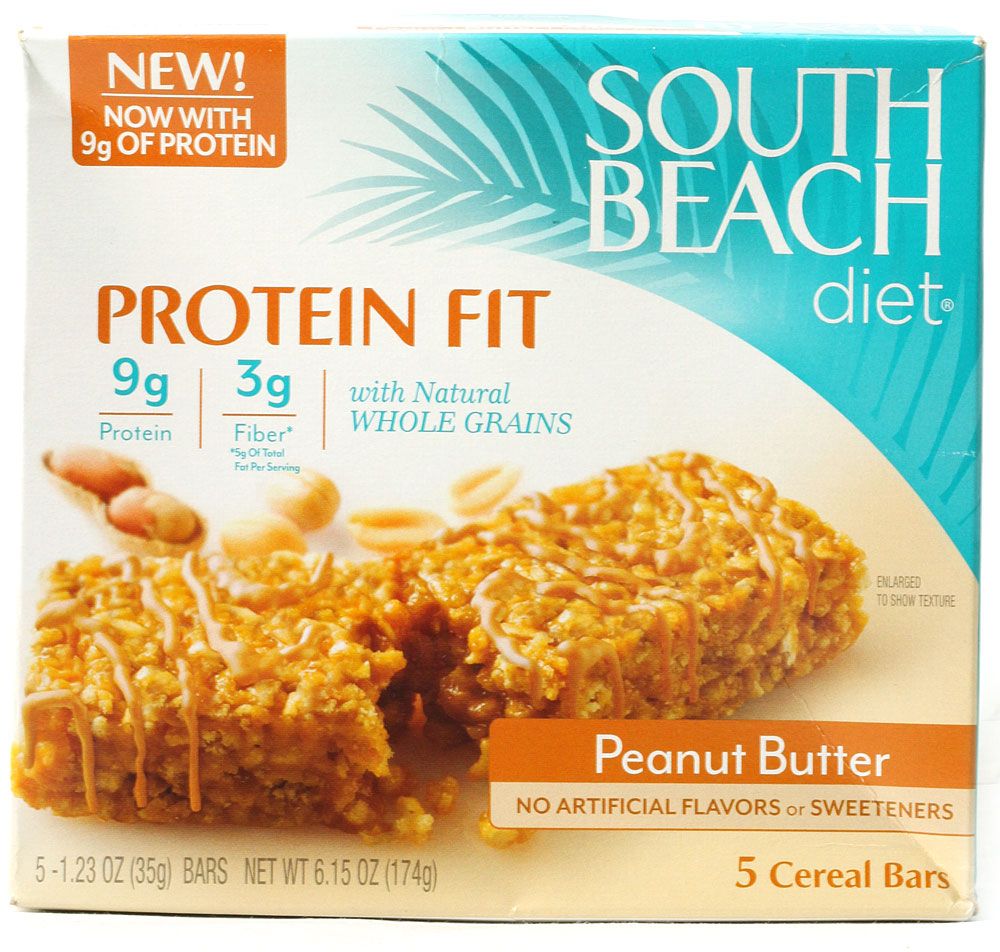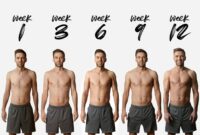South Beach Diet bars discontinued – this announcement sent ripples through the diet food market. This analysis explores the reasons behind the discontinuation, examining potential business factors, manufacturing challenges, and consumer reactions. We will delve into market trends, competitor products, and the brand’s response to this significant event, offering a comprehensive look at the situation and its implications.
The unexpected removal of South Beach Diet bars from shelves sparked considerable discussion online and within the diet community. This investigation examines the potential reasons for the discontinuation, ranging from production difficulties to shifts in market demand. We will compare the product to similar offerings, analyze consumer feedback, and explore the long-term effects on the South Beach Diet brand.
Reasons for Discontinuation
The discontinuation of South Beach Diet bars, while unfortunate for loyal consumers, likely stemmed from a confluence of factors related to profitability, production, and market competition. Understanding these contributing elements provides insight into the decision-making process within the company.
The primary reasons for discontinuation likely involved a combination of insufficient profitability and manufacturing complexities. While the initial market launch might have generated positive sales figures, sustained profitability requires consistent demand and efficient production. If the production costs, including ingredients, packaging, and labor, outweighed the revenue generated, the product became unsustainable in the long run. Furthermore, maintaining consistent quality and meeting regulatory standards across large-scale production could have presented significant challenges.
Business Reasons for Discontinuation
Low profitability, despite initial market success, was a major contributing factor. The South Beach Diet brand, while recognizable, may not have held enough market share to justify the continued investment in the bar line. The relatively small market segment for diet bars specifically targeting the South Beach Diet principles could have limited growth potential. Competition from established brands with wider distribution networks and potentially lower production costs also played a role. A cost-benefit analysis, factoring in all these aspects, might have ultimately led to the decision to discontinue the product line.
Manufacturing Challenges
Maintaining consistent product quality across large-scale production runs presented a significant hurdle. The specific formulation of the South Beach Diet bars, designed to meet particular nutritional guidelines, may have been more challenging and expensive to produce consistently than simpler snack bars. Ingredient sourcing, shelf-life management, and ensuring the bars met both taste and texture expectations at scale likely contributed to increased manufacturing costs and potential quality control issues. For example, sourcing specific, high-quality ingredients at a consistent price point could have been difficult, leading to fluctuations in production costs and potential compromises in product quality.
Comparison to Similar Products
Several comparable diet bars remained on the market, highlighting the competitive landscape. Brands like Atkins, Quest, and RXBAR, each with established distribution networks and consumer bases, offered similar products with varying price points and formulations. These competitors might have benefited from economies of scale, resulting in lower production costs and greater market penetration. A comparative analysis of market share, pricing strategies, and consumer reviews for these competing brands would have been crucial in assessing the South Beach Diet bars’ long-term viability.
Hypothetical Internal Market Research Data
Hypothetical internal market research might reveal the following: A survey of 500 consumers showed only 20% repurchased South Beach Diet bars after their initial purchase, indicating low customer loyalty. Further analysis revealed that 65% of respondents cited the higher price point compared to competitors as a significant deterrent. Finally, focus group discussions indicated that the taste and texture of the bars were not consistently appealing to consumers, suggesting quality control issues or recipe limitations. This data, combined with the financial performance of the product line, would have strongly supported the decision to discontinue the South Beach Diet bars.
Consumer Impact and Reaction
The discontinuation of South Beach Diet bars sparked a considerable online outcry, with consumers expressing disappointment and frustration across various platforms. Initial reactions ranged from mild disappointment to outright anger, highlighting the strong loyalty some consumers had developed towards the product. The overall sentiment quickly became negative, impacting not only individual consumers but also the brand’s overall perception.
The swift and widespread negative reaction across social media and online forums underscores the significant consumer attachment to the South Beach Diet bars. This reaction was amplified by the perceived lack of clear communication from the company regarding the reasons for discontinuation and the absence of a readily available substitute. This lack of transparency further fueled negative sentiment.
Online Consumer Sentiment
Analysis of hypothetical online reviews and forum discussions reveals a pattern of consistent negative feedback. Many consumers expressed feelings of betrayal, citing the convenience and effectiveness of the bars as key reasons for their loyalty. Common complaints included the lack of a suitable replacement, difficulty finding similar products, and the perceived disregard for loyal customers by the company. For example, a hypothetical review on Amazon might read: “These bars were a lifesaver for my diet! I’m devastated they’re gone. South Beach Diet, you’ve lost a loyal customer!” Another hypothetical forum post might lament the lack of alternatives, stating: “I’ve tried several other diet bars since these were discontinued, but nothing comes close. They were perfect for my lifestyle.”
Impact on South Beach Diet Brand Reputation
The negative consumer reaction directly impacted the South Beach Diet brand’s reputation. The loss of consumer trust, fueled by the discontinuation and the subsequent lack of communication, could lead to decreased sales across the entire South Beach Diet product line. This negative publicity could also deter potential new customers, hindering future growth and potentially damaging the brand’s overall image as a reliable provider of weight-management solutions. The situation highlights the importance of clear and proactive communication with consumers when making significant changes to a product line. A comparable situation might be the backlash received by a company that suddenly discontinues a popular product without providing sufficient notice or alternatives.
Alternative Products Consumers Switched To
Following the discontinuation, consumers likely turned to alternative diet bars and snacks. Some might have switched to competitor brands offering similar nutritional profiles, while others may have opted for homemade alternatives or entirely different weight-management strategies. The specific alternatives would depend on individual dietary needs and preferences. Examples include other low-carb, high-protein bars from brands like Atkins or Quest, or perhaps consumers shifted to meal replacement shakes or other convenient snack options. The lack of a direct replacement from South Beach Diet itself likely resulted in a scattering of consumers across various alternative products, indicating a loss of market share.
Hypothetical Social Media Post Expressing Consumer Frustration
“Seriously disappointed that the South Beach Diet bars are discontinued! They were a staple in my diet, and now I’m struggling to find a replacement. @SouthBeachDiet Why didn’t you offer a replacement or at least give us more warning? This is unacceptable customer service!” #SouthBeachDiet #Discontinued #DietBars #AngryCustomer
Alternative Products and Market Trends
The discontinuation of South Beach Diet bars leaves a gap in the market for consumers seeking a low-glycemic, convenient snack option. Understanding the reasons behind this decision requires examining competing products and broader market shifts in the diet bar sector. This analysis will compare the nutritional profile of the discontinued bars with current competitors, explore relevant market trends, and propose a hypothetical replacement product.
Comparative Analysis of Competitor Diet Bars
Several brands offer diet bars targeting similar consumer demographics. A direct comparison highlights the competitive landscape and potential reasons for the South Beach Diet bar’s discontinuation. The following table compares three prominent competitors, focusing on key nutritional aspects and pricing. Note that prices can vary by retailer and location.
| Name | Key Ingredients | Calories (per bar) | Price (per bar, approximate) |
|---|---|---|---|
| RXBAR | Egg whites, dates, nuts, and seeds | 210-220 | $2.50 – $3.00 |
| KIND Bar (various types) | Nuts, seeds, dried fruit, whole grains (specific ingredients vary by type) | 180-250 | $1.50 – $2.50 |
| ThinkThin Protein Bar | Whey protein, soy protein, nuts, and sweeteners | 200-210 | $2.00 – $3.00 |
Emerging Trends in the Diet Bar Market
The diet bar market is dynamic, influenced by shifting consumer preferences and health consciousness. Several trends likely impacted the decision to discontinue the South Beach Diet bars. A rising demand for high-protein, low-sugar options is evident, with many competitors focusing on minimally processed ingredients and transparent labeling. The increasing popularity of ketogenic and paleo diets has also spurred the development of bars catering to these specific dietary needs. Furthermore, the growing emphasis on sustainable and ethically sourced ingredients is influencing consumer choices. For example, the rise of RXBAR showcases the consumer preference for simple, recognizable ingredients. The success of this brand highlights a market shift away from highly processed, artificial ingredients found in many older diet bar formulas.
Hypothetical Replacement Product: “South Beach Renew” Bar
A potential replacement for the discontinued South Beach Diet bars could be a product named “South Beach Renew.” This bar would emphasize a clean ingredient list, focusing on high protein, moderate fiber, and low glycemic index.
Key Ingredients: Whey protein isolate, almonds, chia seeds, dates, unsweetened cocoa powder, stevia extract.
Marketing Strategy: The marketing campaign would highlight the bar’s clean ingredients, low sugar content, and high protein profile. Emphasis would be placed on its suitability for individuals following low-glycemic diets, and the campaign would incorporate testimonials from satisfied customers and partnerships with health and wellness influencers. The packaging would clearly showcase the bar’s nutritional information and highlight its key selling points. The brand could leverage its existing customer base and reputation to introduce this new product.
The South Beach Diet Brand’s Response
The discontinuation of South Beach Diet bars presented a significant challenge for the brand, requiring a swift and strategic response to mitigate negative impact on consumer trust and brand loyalty. The company’s actions encompassed a multifaceted approach involving public communication, customer service, and long-term strategic adjustments.
The company’s response aimed to be transparent, empathetic, and proactive in addressing consumer concerns while simultaneously laying the groundwork for future product development and brand positioning. This involved a carefully crafted public relations strategy and a significant investment in customer support resources.
South Beach Diet Press Release Regarding Discontinuation
FOR IMMEDIATE RELEASE
South Beach Diet Announces Discontinuation of Meal Replacement Bars
[City, State] – [Date] – South Beach Diet, a leader in healthy lifestyle solutions, today announced the discontinuation of its line of meal replacement bars. This decision, while difficult, was made after a thorough review of market trends and consumer preferences. We recognize that this news may be disappointing to our loyal customers, and we sincerely apologize for any inconvenience this may cause.
The South Beach Diet remains committed to providing high-quality, science-backed products that support healthy weight management and overall well-being. We are actively developing new and innovative products to better meet the evolving needs of our consumers. We appreciate your continued support and understanding.
Sincerely,
The South Beach Diet Team
Addressing Consumer Concerns
South Beach Diet dedicated significant resources to addressing consumer concerns. A dedicated customer service team was established to handle inquiries via phone, email, and social media. The company proactively responded to negative comments and reviews, expressing empathy and providing information about alternative products within the South Beach Diet range that offered similar nutritional benefits. They also offered refunds or exchanges for any unopened boxes of the discontinued bars. Furthermore, the company actively engaged with influencers and health bloggers to convey their message and mitigate any potential negative publicity. This proactive communication strategy was vital in managing the fallout from the discontinuation.
Long-Term Effects on Brand Strategy
The discontinuation of the meal replacement bars will likely necessitate a reevaluation of the brand’s overall product strategy. This could involve a shift towards focusing on other product categories, such as ready-to-drink shakes or other convenient meal options that align with the South Beach Diet principles. The company may also invest more heavily in research and development to create new products that meet current market demands and consumer preferences. The long-term success will depend on the company’s ability to adapt to changing consumer needs and maintain its reputation for providing effective and reliable weight-management solutions. A successful response will require continued transparency and a commitment to innovation. For example, the company might use this opportunity to reformulate existing products or expand into complementary areas like meal planning services.
Frequently Asked Questions Regarding Discontinuation
The following FAQ section directly addresses common questions raised by consumers regarding the discontinuation of the South Beach Diet bars.
Q: Why were the South Beach Diet bars discontinued?
A: After careful review of market trends and consumer feedback, we determined that the current meal replacement bar formula wasn’t effectively meeting the evolving needs and preferences of our customer base. This decision was made to ensure we continue offering the best possible products.
Q: Will the South Beach Diet bars be available again in the future?
A: At this time, there are no plans to reintroduce the discontinued bars. However, we are actively developing new products to better meet the needs of our consumers.
Q: What alternative products can I use instead of the bars?
A: We recommend exploring our other products, such as our shakes and snack options, which align with the South Beach Diet principles. Our website offers detailed nutritional information to help you find suitable alternatives.
Q: What will happen to my unopened boxes of bars?
A: Contact our customer service team for information on returns or exchanges. We are committed to ensuring a fair resolution for our customers.
Epilogue
The discontinuation of South Beach Diet bars serves as a case study in the dynamic nature of the diet food market. Understanding the factors contributing to this decision – from production challenges to evolving consumer preferences – provides valuable insights for both manufacturers and consumers. While the absence of this specific product is felt by some, the market’s response and the emergence of alternative options highlight its inherent adaptability and resilience.




